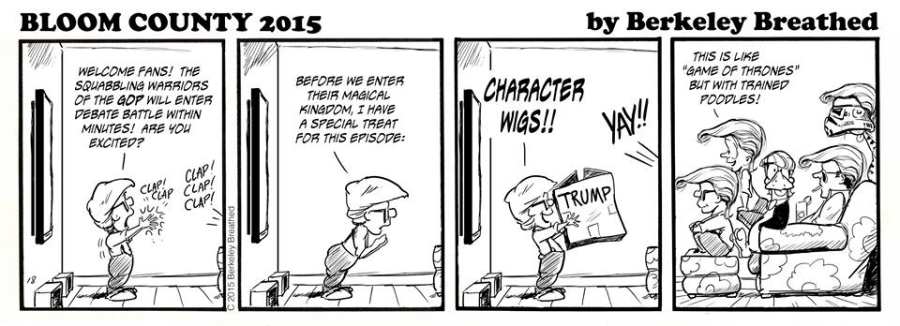No one's claimed it's not legal. I've said it's perfectly legal a number of times. It is, however, censorship.
Nope, not in the eyes of the law.
If you forbid a venue based on the content of the speech, it's censorship. It doesn't matter a lick if there are other venues. This is like saying that you can ban Coke because there's milk, and they're both drinks so it's not like you're having anything taken from you -- you can still drink, right?
And
Oh, please Danny, don't pretend that Trump is not a special case in his ability to get his message heard. It may be "de minimis" for Trump, but wouldn't be for most people. So, I ask again, is the question of whether a thing effectively censorship to be determined by one's personal ability to work around the measure?
It is well established law that reasonable time, place and manner (TPM) restrictions are legal, but they have boundaries. The oft cited illegality of shouting "Fire!" in a crowded theater is one obvious example.
Several SCOTUS cases have held that no one may "insist upon a street meeting in the middle of Times Square at the rush hour as a form of freedom of speech" (Cox v. Louisiana, 379 U.S. 536, 85 S. Ct. 453, 13 L. Ed. 2d 471 [1965])
Outside of situations like that, the standard usually applied is that the government may impose reasonable TPM restrictions on speech only by showing "significant" or "important" reasons.
From
http://legal-dictionary.thefreedictionary.com/Time,+Place,+and+Manner+Restrictions
All TPM restrictions must provide speakers with alternative channels for communicating ideas or disseminating information. Unlike millionaire moguls and corporate giants, the average person on the street does not commonly communicate through the mass media. Most people do not hold press conferences, and if they did, few members of the media would attend. Instead, the great bulk of communication takes place through the circulation of leaflets, hand-bills, and pamphlets, which most people can distribute and read in a cheap and efficient manner. As a result, courts are generally sensitive to protecting these modes of communication, and TPM restrictions limiting their distribution usually founder.
The Internet, however, has fast become an easy alternative for mass distributing information. As such, it is often difficult to apply TPM restrictions. For example, politicians use bulk E-Mail as a quick way to reach thousands, even millions, of their constituents. Called "political spam," this method of campaigning has both advocates and detractors. Opponents claim that unsolicited political e-mails are an invasion of privacy. As precedence, they point to the Eighth Circuit ruling in Van Bergen v. Minnesota, 59 F.3d 1541 (1995), which upheld a Minnesota state law prohibiting candidates from using a device that automatically dialed residential telephone numbers and played a prerecorded political campaign message. According to the court, "the telephone system is a private channel of communication," and the Minnesota law rightfully placed restrictions on time, manner, and place of speech.
As you rightly point out- and I expressly stated- Trump has more means to get his message out than Joe Citizen. But as the above quoted section illustrates,
1) the existence of alternative channels for the speaker's message is part of the legal test for whether a restriction will be upheld, and
2) the rise of low-cost Internet communications has made TPM restrictions de minimis for most speakers. Trump and those like him may indeed have access to paid media that 99.99% of people can't touch, but- like the leaflets, hand-bills, and pamphlets- Facebook, Twitter, etc. provide a worldwide audience, and will likewise be protected in the same manner by the courts. (As noted, there have been ZERO discussions about restricting Britons' access to Trump's online resources, merely restricting their ability to bask in his presence.)
Despite our lack of financial resources (compared to a billionaire), if you or I were scheduled to give a talk in the UK, but, Trumpishly, were barred physical entry (and nothing else) to the country, odds are good that the talk's potential addressees could still receive my message via online postings (Facebook and other social media), or even via the relatively ancient method of giving my email address to the disappointed attendees...or vice versa for a mass mailing. The talk could be posted entirely on YouTube. The hosts could set up a Skype appearance, which would even allow for audience Q & A.
You haven't been censored: your message is still intact, it still reaches its intended audience- depending on method used- on time or even earlier.
The only difference is you aren't in the country.
(FWIW, Umbran, you know that I'm really sticking to the legal definitions of censorship. What I'm experiencing in pushback is, I think, akin to what happens when you tell someone what they're calling a star is actually a galaxy...and they say, "No, it's a star.")

